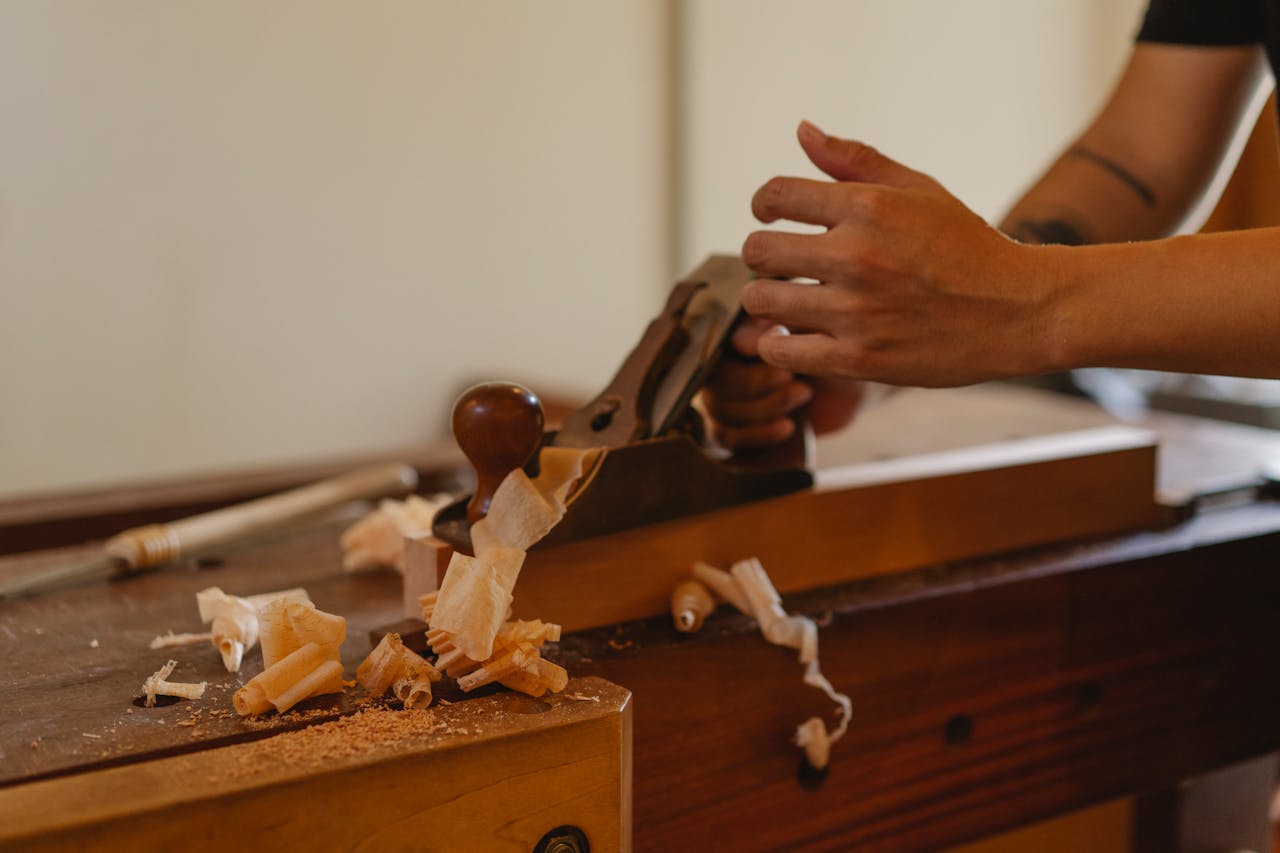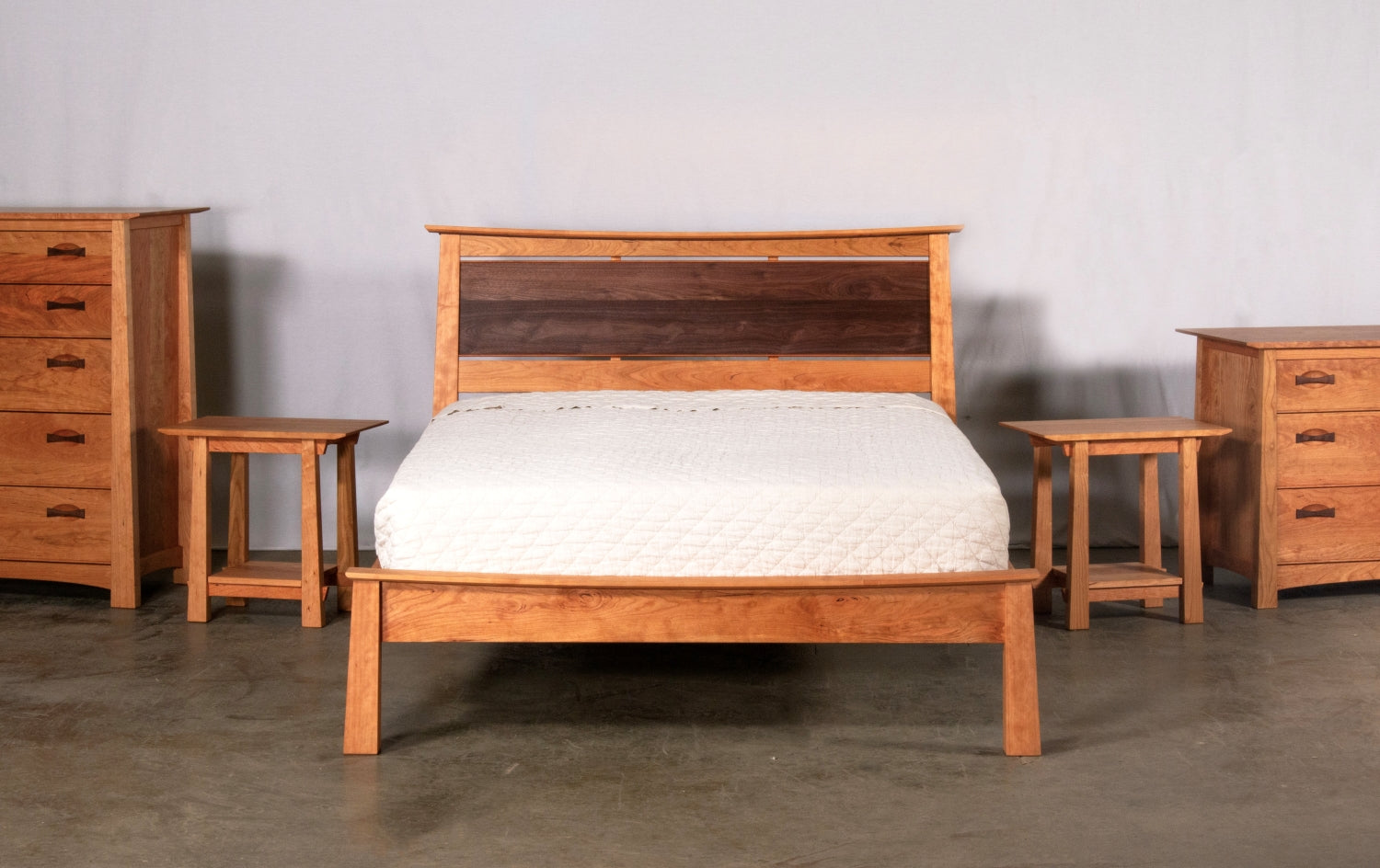Last week, I needed to change a lightbulb in the dining room. Rather than retrieve that ladder from the backyard, I impulsively climbed onto the dining table. The surface was as stable as the ground could be. It felt strong and unwavering, without any sign of strain under my weight.
Only later did I appreciate why I felt so secure. That table is a family heirloom, made of hardwood and mostly traditional joinery. I easily assumed it was safe because I knew its quality. I wouldn’t dare attempt standing on a particleboard table.
The table has been in the family for roughly 150 years, and it's safe to say it’s an authentic handmade piece. This is one of the things that makes handmade furniture so special. Not only does it endure for generations, but its inherent strength also offers us peace of mind. It’s the furniture we can rely on.
How does handmade furniture fare against mass-produced furniture? Is a handcrafted piece worth investing in when there are more affordable options? What makes handmade furniture special?
High-Quality Materials
Handcrafted furniture is synonymous with better quality. Unlike factory-made furniture, which often relies on materials like plywood, MDF, and particleboard, handmade pieces are typically built from natural hardwood.
Solid wood, compared to engineered wood, is more resilient to the demands of everyday life. As it is sourced from whole timber, solid wood maintains its structure and even improves with age. It can handle weight, even some level of moisture, especially with a protective layer of wood oil or balm. Repairing and refinishing hardwood furniture, multiple times over, is also possible.
In contrast, engineered wood can eventually weaken. The glue that holds compressed wood fibers together and attaches the veneers can lose strength over time, especially when exposed to moisture and heavy weight. Once water seeps into its layer of protection, even when it dries, the piece of furniture is never quite the same. When it starts to sag, it usually means a death sentence and needs to be replaced.

Photo by cottonbro studio from Pexels
Level of Craftsmanship
In an assembly line, the priority is speed, which means that little thought is spared on making the piece of furniture, just inconsequential parts with hardly any imagination of the whole. What matters most in mass production is that the quota and demand are met.
This is a stark contrast to handmade furniture, which is built through a creative process, typically in a one-craftsperson-per-piece scenario. At its core is true craftsmanship, which means there is thought and soul poured into it. A skilled artisan’s work can’t simply be replicated by machines with the same meticulous attention to detail. Every cut, joint, and finish is done with human intention, making a piece of furniture more than just a product. It’s a work of art.
Many furniture makers use traditional techniques that make a piece of furniture structurally sound, even with decades of use. Joinery like mortise and tenon or dovetail is designed to allow for the natural warping and expansion of wood. Even when screws and nails are used, they are carefully considered for their role in the overall construction.
So, while handmade furniture tends to take time to build, the wait is worthwhile. You can rest assured that the skilled hands crafting your piece are dedicated to delivering the best possible outcome.
Sustainable and Ethical
Handmade furniture can be a more environmentally responsible choice. That said, it’s important to acknowledge that hardwood can originate from illegally harvested timber and has contributed to deforestation in different corners of the world. The key consideration here is that for handmade, solid wood furniture to be truly sustainable, it must be sourced locally, from responsibly managed forests or reclaimed materials.
Compared to factory-made furniture, which often relies on mass production processes that generate excessive and potentially toxic waste, solid wood furniture tends to be a more sustainable option. Its byproducts, such as wood shavings and offcuts, are often repurposed.
Aside from the waste, large-scale factories often prioritize cost-cutting measures that lead to not just lower-quality material but also exploitative labor practices. In contrast, handmade furniture is typically produced by smaller operations—local workshops of a few skilled craftsmen, even solo artisans—that tend to provide better wages and safer working environments.
Warm and Unique
Mass-produced pieces often feature a uniform look, especially those that are plastic laminate. But no two pieces of furniture that are handcrafted and made of solid wood are ever exactly alike. As a natural material, there are always subtle variations in its grain pattern and color, even when it comes from the same timber. Choosing a handmade piece ensures that what you take into your home is truly unique, instead of a generic piece you can see in every big-box store.
But what makes handmade furniture even more special is the story it carries, of the number of hours a craftsman had dedicated to bringing it to life. There’s a certain warmth in knowing that a piece of furniture wasn’t rushed through an assembly line but thoughtfully made and with intention.

An artisan makes a drawer box by hand at the T.Y. Fine Furniture workshop.
Where to Find Handmade Furniture
Handcrafted furniture is much easier to source than you think. T.Y. Fine Furniture, based in Columbus, Ohio, has a local workshop where skilled artisans create pieces of furniture that are a blend of innovative techniques and traditional joinery. They craft exquisite pieces using responsibly sourced, locally grown hardwoods like oak, cherry, walnut, and maple.
Their diverse collection of fine furniture is available made-to-order, with options for minor customizations to perfectly suit your needs. You can even commission completely bespoke furniture for your home and business. Beyond in-house creations, T.Y. Fine Furniture also carries reputable brands like American Leather, Stressless, and Fjords, which also offer custom pieces.
Feel free to reach out so you can finally find the ideal handmade piece for your space.
***
In a world where products are often treated as temporary and disposable, handmade furniture reminds us that there is value in permanence, in owning meaningful things that grow with us.
Related Posts
- Why Now Is the Time to Buy Local and Handmade
- Pet-Friendly Fabrics From American Leather
- Answering the Top FAQs About Wood Furniture
Featured Photo by Ono Kosuki from Pexels



Leave a comment
This site is protected by hCaptcha and the hCaptcha Privacy Policy and Terms of Service apply.